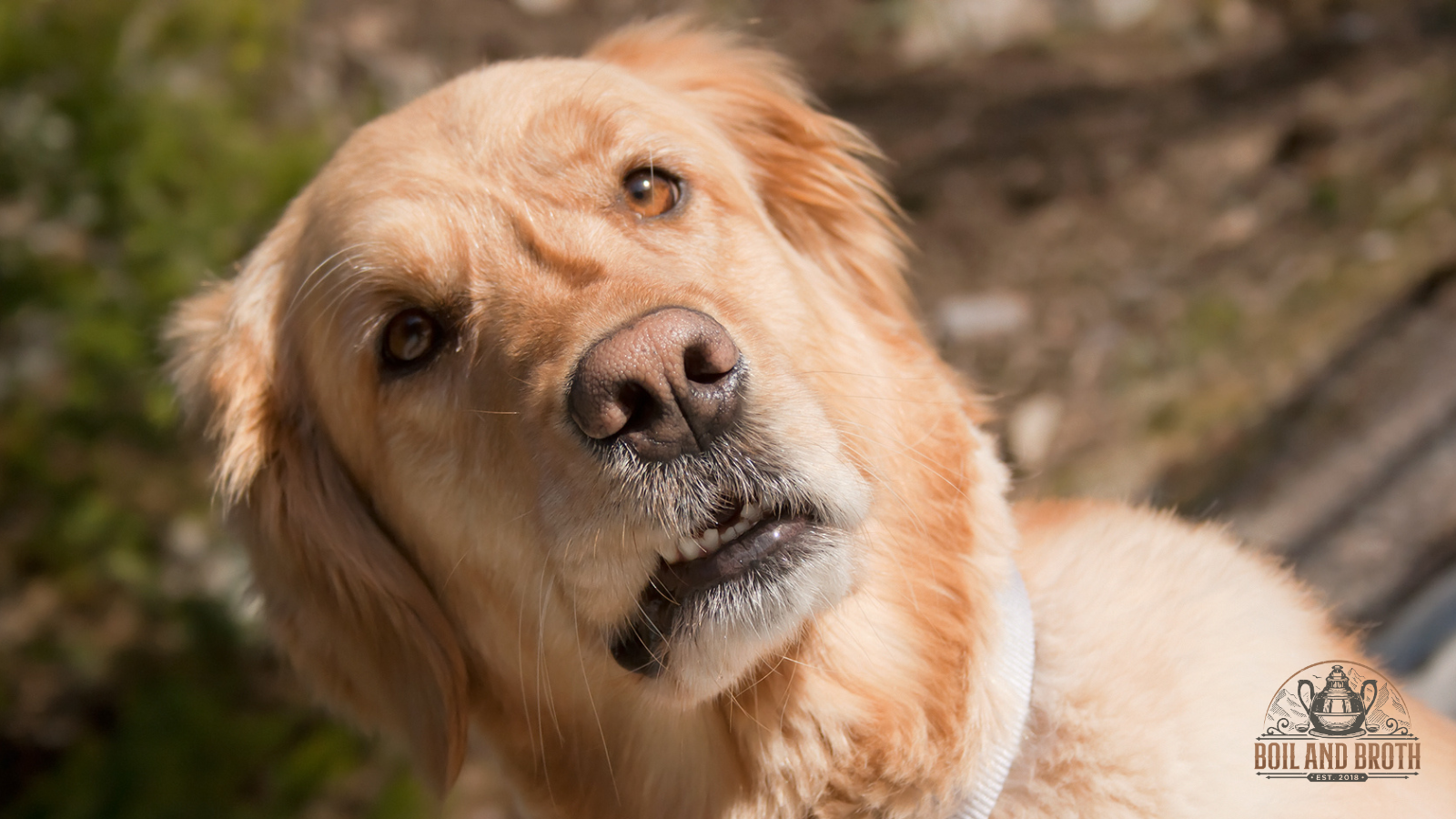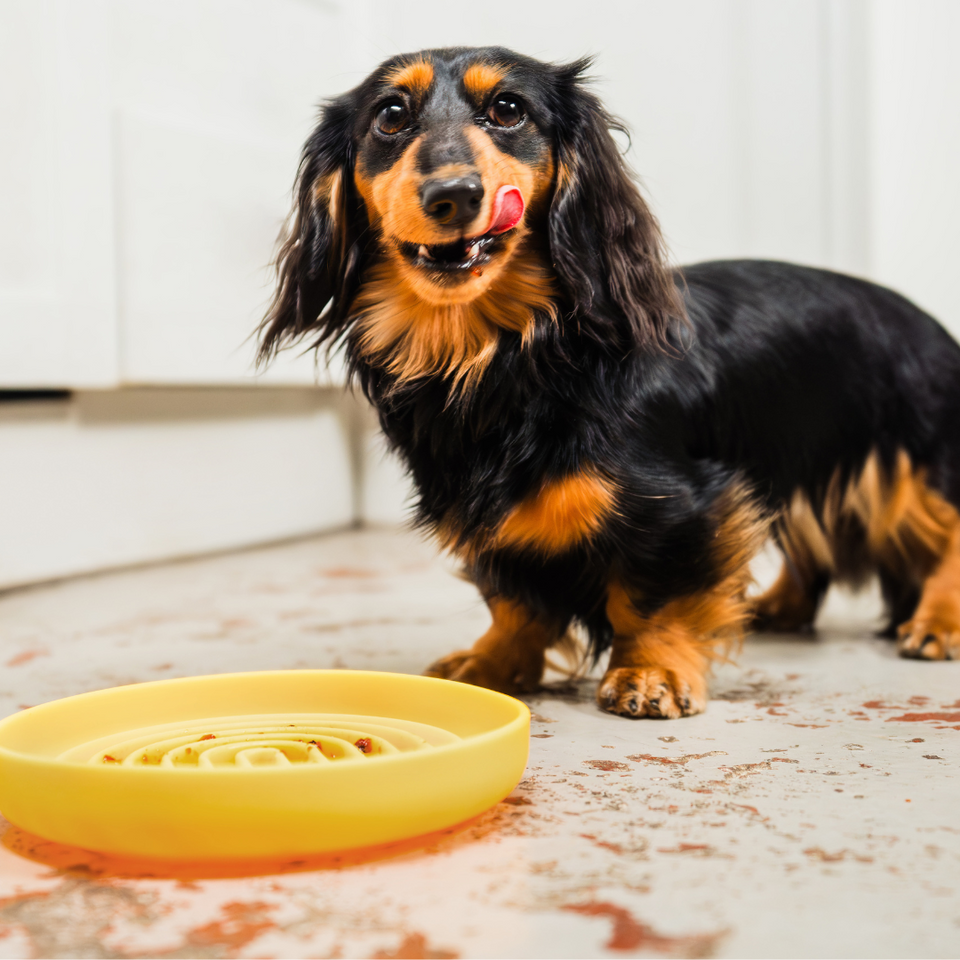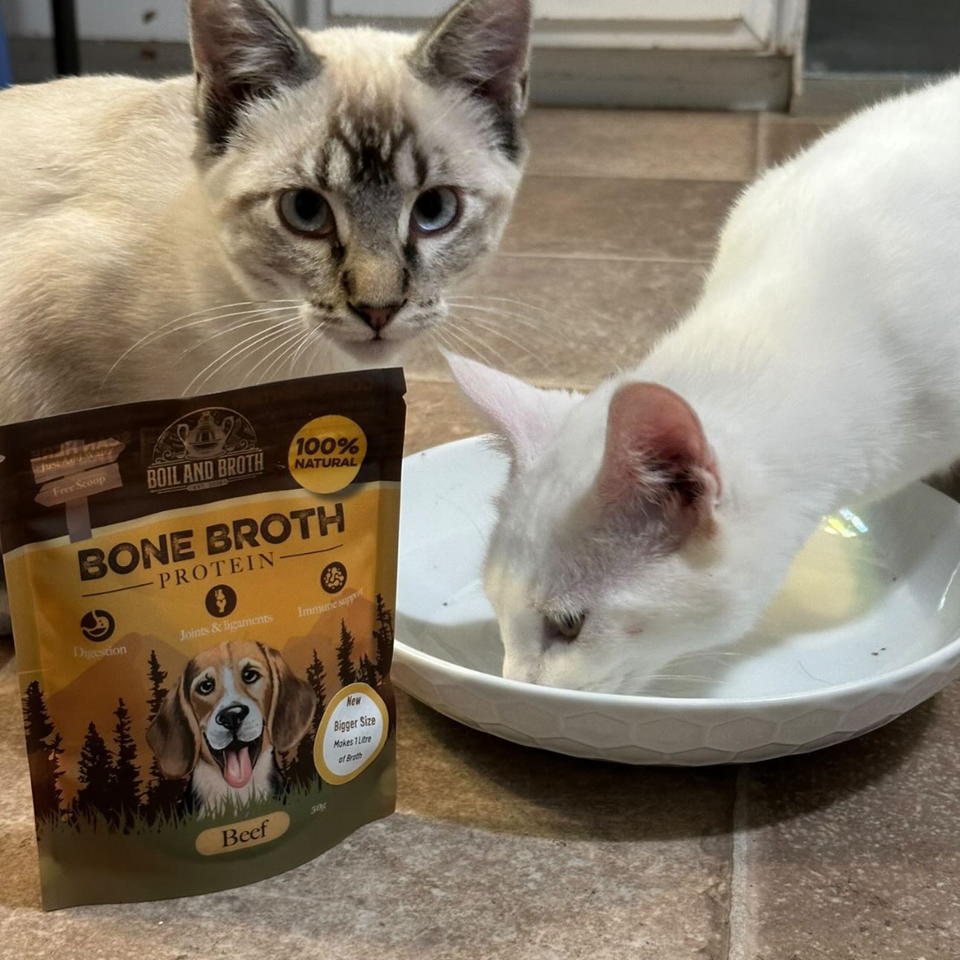
Natural Ways to Manage Anxiety in Dogs
Does your dog struggle with separation anxiety, nervousness, or stress-related behaviours? Anxiety in dogs can manifest as excessive barking, pacing, destructive chewing, trembling, or digestive issues. Recent research, including our Biome Broth Study, proves that gut health plays a significant role in anxiety, as the gut and brain are closely connected. By improving gut health, we can naturally help our dogs feel calmer and more balanced.
1. Bone Broth for Gut & Nervous System Support
Bone broth is rich in amino acids, collagen, and gelatin, which support gut healing and reduce inflammation that can contribute to anxiety.
✅ Why It Works:
- Restores Gut Health – A healthy gut improves serotonin production (the "feel-good" neurotransmitter).
- Provides Glycine – An amino acid that has a calming effect on the nervous system.
- Supports Hydration & Nutrition – Essential for overall well-being.
2. Kefir Water for Probiotics & Mood Balance
Kefir water is a fermented probiotic drink that balances gut bacteria, reducing stress and anxiety.
✅ Why It Works:
- Regulates the Gut-Brain Axis – A balanced gut microbiome promotes calm behaviour.
- Reduces Inflammation – Helps decrease cortisol (the stress hormone).
- Boosts Immunity & Mood – Good gut bacteria support emotional stability.
✔️ How to Use:
- Start with 1 teaspoon (small dogs), 1 tablespoon (medium/large dogs) daily.
- Gradually increase as tolerated.
3. Magnesium & Omega-3 Fatty Acids for Relaxation
These nutrients help regulate the nervous system and reduce hyperactivity.
✔️ Best Sources:
- Chia seeds & flaxseeds (rich in Omega-3s)
- Pumpkin seeds (high in magnesium)
- Wild-caught salmon oil (for brain function)
✔️ How to Use:
- Add ½ teaspoon per 5kg of body weight to meals daily.
4. Chamomile & Valerian Root for Natural Relaxation
Both chamomile and valerian root act as gentle, natural sedatives to calm anxious dogs.
✔️ How to Use:
- Brew a weak chamomile tea and let it cool before adding 1-2 teaspoons to food or water.
- Use valerian root in powder or liquid form (check dosage for dogs).
5. Slippery Elm for Stress-Induced Digestive Issues
Many anxious dogs suffer from stress-related diarrhoea or an upset stomach. Slippery elm coats the digestive tract and reduces gut inflammation.
✔️ How to Use:
- Mix ¼ teaspoon (small dogs), ½ teaspoon (medium dogs), 1 teaspoon (large dogs) into food daily.
6. Create a Calm Routine
- Regular Exercise – Helps burn off nervous energy and reduce stress.
- Mental Stimulation – Puzzle toys and training exercises keep the mind engaged.
- Comforting Scents – Lavender and chamomile essential oils (diffused) can have a calming effect.
- Safe Spaces – A quiet, cosy area can help an anxious dog feel secure.
7. Avoid Anxiety Triggers & Artificial Additives
❌ Avoid:
- Artificial colours, preservatives, and high-sugar treats (which can worsen hyperactivity).
- Excessive loud noises, unfamiliar environments, or overstimulation.
✔️ Instead, focus on a nutritious, gut-friendly diet, calming supplements, and a stress-free environment.
When to Seek Veterinary Help
If anxiety is severe, consult a vet for further advice. Natural remedies work best when combined with positive reinforcement training and a consistent routine.
By using bone broth, kefir water, probiotics, and natural calming remedies, you can help your dog feel more relaxed, balanced, and happy. 🐶💚











